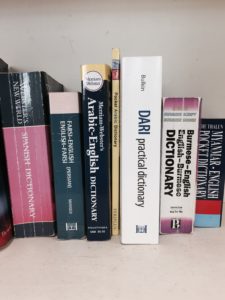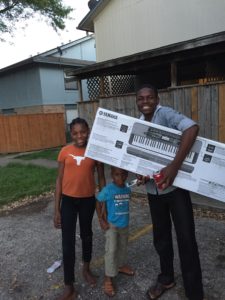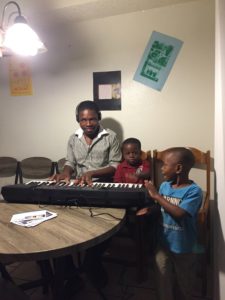If language weren’t a barrier with my students, I would tell them, I like the best of your country that I see in you. The parts of your cultural personality that have been hammered by evil governments. I would tell you that I see the best parts of your people in you.
The Afghani women: I see your veiled strength. You bore 6 children with never an epidural, in the harsh desert without good hospitals. You cook every meal, every single day. You’ve been on your feet in the kitchen since age 10. You must be chaperoned in public. You always defer to your husband. I see how taxing life is from the time you are married at a young age. Your face is 15 years older than mine, but in truth you are 10 years younger than me. With every year your burdens compound. But I see your strength.
I see how you pull the head scarf of your hijab a little tighter when you’re nervous. When I ask you to speak aloud in English. It’s so hard to be vulnerable in public. You are so unfamiliar with that idea. I see you trying to adjust to our American expectations while keeping your standards of discretion. And I applaud you for choosing to live in that tension.
To my Burmese students. I see your gift for hospitality. Should I come to your home you would unroll the red carpet. And I have come to your homes, and you treat me like royalty. Once when I visited one of you there was only pancake batter in your cupboard. I stole a glance when you opened the cupboard. Nothing there but a box of pancake batter. And so you made me pancakes. And they were the most delicious pancakes I’ve ever tasted. I choked back tears as I ate them because of your humility and vulnerability. The willingness to show all your weak cards for the sake of someone else’ comfort. Americans know nothing of such humility. We would rather hide our weakness; we would close the cupboard and lie. We deceive ourselves that we are strong because we have money and a certain level of freedom.
But you look more like God to me. Your softness. Your meekness. Your simplicity. These are the ways of Christ. These things about you astound me and shake me from my insulated, privileged American discontent.
If language were not a barrier I would gather all my Congolese students around me on a front porch one evening and we would shoot the breeze and tell jokes for hours. We would laugh and drink and whittle time away till the sun came up. If language were not a barrier. You are the most light-hearted, affable people I have ever met. With nothing but time to offer your friends. You tell me, “Americans are too busy.” And then you laugh because the joke is on us. And your observation is exacting and convicting.
By way of contrast, I have seen my own hurried reflection in your ease and relaxed approach to life. You are changing me, that’s what I would tell my Congolese friends.
And finally, if language were no barrier I would tell my refugee students this: you’ll be in my writing for years to come. By some mysterious way of God, you–the refugees of the world– were a piece I needed for some novels that need writing. I have at least two novels bursting to be born in me, and I needed to be an English teacher to adult refugees to get some essential pieces for those novels. I’ve been taking copious notes this year and a half of teaching you English.
My students, your English will continue to improve. And one day I’ll hand you my first novel. You’ll read it and see parts of yourselves in the characters. And you’ll know my depth of gratitude.




